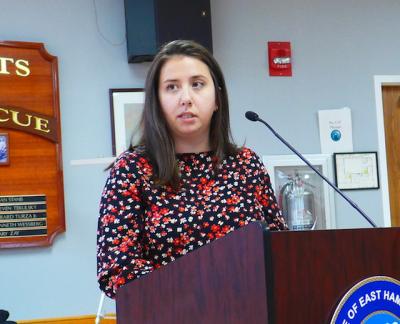Event Legislation Draws Out Pros, Cons

Legislation that seems to take direct aim at the village’s historic inns, which are popular for weddings and other large gatherings, received a thorough going over at an East Hampton Village Board public hearing on Friday. At its close, Mayor Paul F. Rickenbach Jr. announced that the record would be kept open for further debate.
Under existing law, a permit is necessary only for an event on private or commercial property with 50 or more people when the use of public parking is required or when an excess of refuse would be generated. The new law mandates that all events of that size obtain a permit and bans special events outdoors or in a tent on commercial properties in residential districts.
The proposed law also makes explicit that a permit could be denied if the frequency of special events at a certain residence or commercial property was so great as to be “incompatible” with its neighborhood. This provision evoked strong reactions both in favor and against the measure.
Patricia Handal, who lives next door to the Hedges Inn on James Lane, commended the board for attempting to rein in her neighbor. “In the last year and a half to two years, the whole atmosphere has changed,” Ms. Handal said. “Now what we’re seeing is a new party center.” She also complained about the noise generated by events at the inn.
“When the tents go up, then you have anywhere from 145 to 175 to 250 people,” she said. Add to that a D.J. playing amplified music and “the decibel level goes up and up and up.” Ms. Handal cited an especially raucous celebration in September that she said compelled her to call the police. “Our house was literally shaking, I had a glass of water in my bedroom and that glass was wiggling.”
Jennifer Lilja, the general manager of the Hedges Inn, countered the notion that it was a party hall and pleaded with the board to consider the financial ramifications of the legislation.
“Events at the Hedges Inn represent a significant percentage of our annual revenue,” she said. “We’re talking hundreds of thousands of dollars.” Charging that the new law was “laser focused on eliminating an existing revenue stream for our business,” she said the financial harm would cascade down to other local businesses, such as florists, caterers, and photographers. As for loud music, Ms. Lilja said it was relatively rare. For six weddings scheduled to be held at the inn in the 2018 season, Ms. Lilja said, there will be “six musicians who will play for a combined total of 30 hours. Thirty hours out of 8,760 hours of peaceful enjoyment of 2018. There is no conscionable claim to be made that our 30 hours of music truly adversely affects the well-being of village residents.”
Linda Margolin, a lawyer for the Maidstone Hotel who spoke against the law, took the criticism further, claiming that it violated the United States Constitution’s protection for free assembly and the right to privacy. On the other hand, John Kowalenko, the owner of Art of Eating, a planning and catering company, used his time at the podium to encourage the board to seek further opinion from the business community before formulating a final draft.
“We understand the sensitivity of the issue. But again this is a quality-of-life issue‚” Mr. Rickenbach said. He was keenly aware of the Constitution, he said, and believes the proposed village law is well within its scope. “If we wanted to usurp the constitutional process, we wouldn’t have even had this hearing today.”
